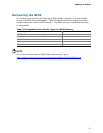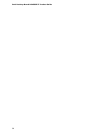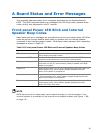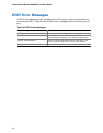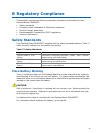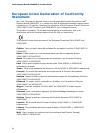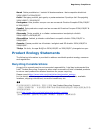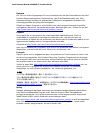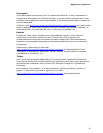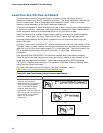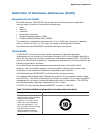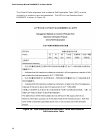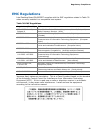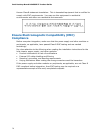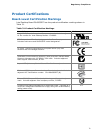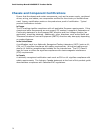
Regulatory Compliance
67
Restriction of Hazardous Substances (RoHS)
European Union RoHS
EU RoHS Directive 2002/95/EC restricts the use of the following six materials in
various types of electronic and electrical equipment:
• Lead
• Mercury
• Cadmium
• Hexavalent chromium
• Polybrominated biphenyls (PBB)
• Polybrominated diphenyl ether (PBDE)
The maximum concentrations allowed are 0.1% or 1000 ppm (except for cadmium,
which is limited to 0.01% or 100 ppm) by weight of homogeneous material.
Intel Desktop Board D945GSEJT complies with these restrictions.
China RoHS
“China RoHS” is the term used by industry generally to describe legislation
implemented by the Ministry of Information Industry (MII) in the People's Republic of
China for the control of pollution by electronic information products (EIP). The official
title of the China RoHS regulation is “Management Methods for Controlling Pollution by
Electronic Information Products.”
China RoHS bans the same substances and has the same limits as EU RoHS.
However, the China RoHS regulation requires specific product marking and a self-
declaration of the controlled substances contained in each product.
Intel Desktop Board D945GSEJT is a China RoHS-compliant product.
The required China RoHS mark indicates the product’s Environmental Friendly Usage
Period (EFUP). The EFUP is defined as the number of years for which listed controlled
substances will not leak or chemically deteriorate while in the product. The EFUP for
Intel Desktop Boards has been determined to be 10 years.
The EFUP for Intel Desktop Board D945GSEJT is shown in Table 29.
Table 29.
China RoHS Environmentally Friendly Use Period Mark
Description Mark
This is an example of the
symbol used on Intel Desktop
Boards and associated
collateral. The color of the
mark may vary depending
upon the application. The
Environmental Friendly Usage
Period (EFUP) for Intel
Desktop Boards has been
determined to be 10 years.



